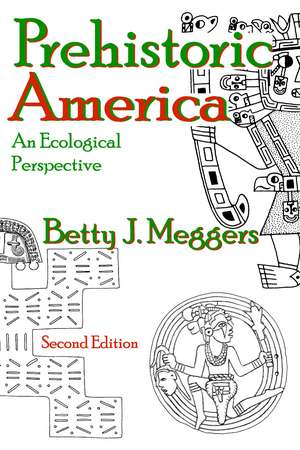Prehistoric America: An Ecological Perspective
Editat de Piotr Makowskien Limba Engleză Paperback – 30 iun 1980
| Toate formatele și edițiile | Preț | Express |
|---|---|---|
| Paperback (2) | 411.26 lei 6-8 săpt. | |
| Taylor & Francis – 15 noi 2009 | 411.26 lei 6-8 săpt. | |
| Taylor & Francis – 30 iun 1980 | 438.38 lei 6-8 săpt. | |
| Hardback (1) | 1000.27 lei 6-8 săpt. | |
| Taylor & Francis – 2 aug 2017 | 1000.27 lei 6-8 săpt. |
Preț: 438.38 lei
Nou
Puncte Express: 658
Preț estimativ în valută:
83.89€ • 87.48$ • 69.72£
83.89€ • 87.48$ • 69.72£
Carte tipărită la comandă
Livrare economică 21 martie-04 aprilie
Preluare comenzi: 021 569.72.76
Specificații
ISBN-13: 9780202330792
ISBN-10: 0202330796
Pagini: 222
Ilustrații: 1
Dimensiuni: 152 x 229 x 12 mm
Greutate: 0.3 kg
Ediția:Revised
Editura: Taylor & Francis
Colecția Routledge
Locul publicării:Oxford, United Kingdom
ISBN-10: 0202330796
Pagini: 222
Ilustrații: 1
Dimensiuni: 152 x 229 x 12 mm
Greutate: 0.3 kg
Ediția:Revised
Editura: Taylor & Francis
Colecția Routledge
Locul publicării:Oxford, United Kingdom
Cuprins
1: Introduction; 2: Settling The Hemisphere; 3: Cultural Development in Nuclear America and the intermeidate area; 4: Apaptation to permissive environments: the forests, the deserts, and the plains; 5: Environmental limitiation on cultural complexity: The pacific coasts, the marginals, and the arctic; 6: Problems and speculations
Descriere
The cultural parallels between widely separated but environmentally similar regions are often extraordinary, yet these parallels are discounted by anthropologists on the basis that they ignore a large mass of less similar data














